With half a lifetime spent growing and processing Cannabis, the man behind the Dirty Arm Farm legend has refocused on sun-grown full-term flower to feed his flourishing rosin operation and a growing family.
It’s a big leap to go from the Oregon Cannabis scene’s meme lord to a family-focused father, but that’s exactly the transition that Jamie Syken has made. He’s emerging from over two decades of growing into a mature, humbled and driven farmer whose sole focus is soil to oil. With 9,000 plants in the ground this year and a team of four, his home overlooks the bountiful fields of green; life has simplified in some ways, but, like the pressure it takes to squeeze rosin, the road to success is paved with sweat, risk and a firm belief in the values of traditional agriculture.
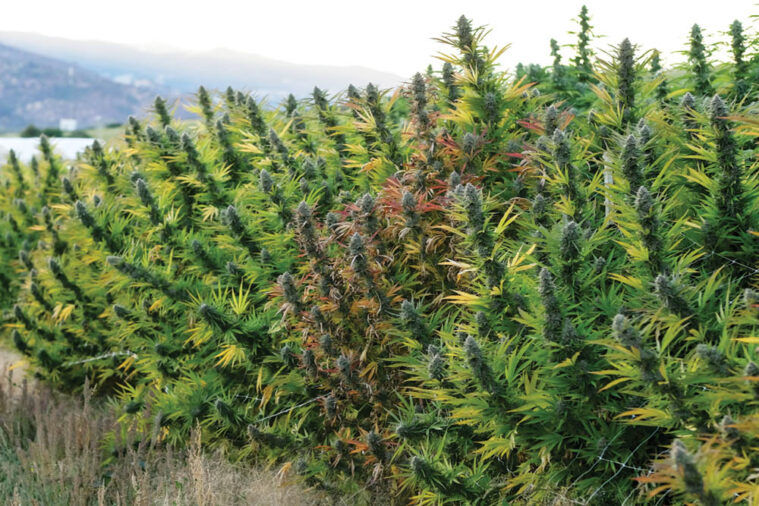
“I’ve been a plant weirdo for 30 years,” he said. “As an herbalist, wild food chef and grower, my spiritual connection with plants runs deep. Growing outside has changed my relationship with the Cannabis plant.”
The Dirty Arm Farm covers two acres on a gently sloped hillside that overlooks downtown Ashland. The land was one of the first homesteads in the city, with long sunny days hitting the hillside directly. Thick, long rows of 30 different strains are grown directly in native soil that’s turned and amended with organic practices, including local cow manure.
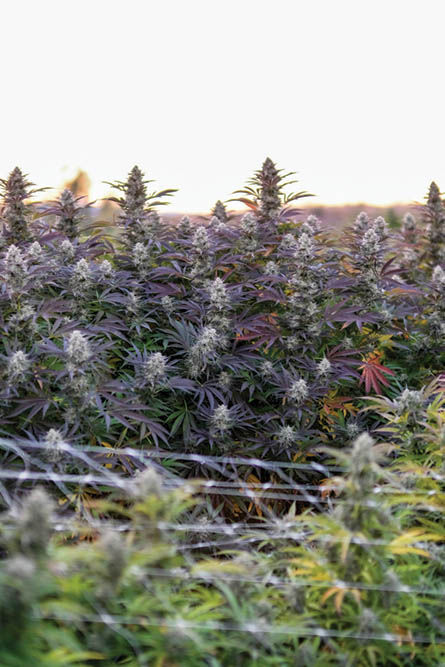
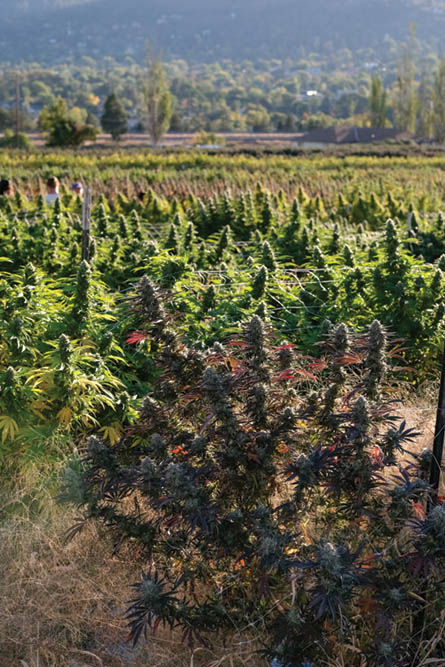
“We put aged cow manure at the top of the rows, and it will roll down all the way to the end. It’s organic and has no impact. We go to the local dairy and get a truckload, so there’s no plastic or shipping waste. Our success is all through efficiency, not corner-cutting, by actually farming and not buying bottles. We’ve adapted large-scale agriculture practices with techniques we’ve collected through the years,” Syken explained passionately. “A big part of our focus is to keep the cost really low because our thing is access. I want the average Albany mill worker to be able to afford Zkittlez. It shouldn’t be only well-off people smoking the best.”
The original greenhouse that powered his run as live resin guru sits empty and is available for rent, as his focus has shifted fully to traditional sun-grown farming. Moving through the rows of towering plants is a little like wading through a river of thick grass, with towering walls of heavily budded and terpene-rich plants as far as the eye can see. There are tons of cover crops, and as we pass through, bugs lift up, with Syken noting that the bugs and deer stick to the cover crops and leave the buds alone. “With all of these native cover crops here, the bugs don’t want the weed,” he said.
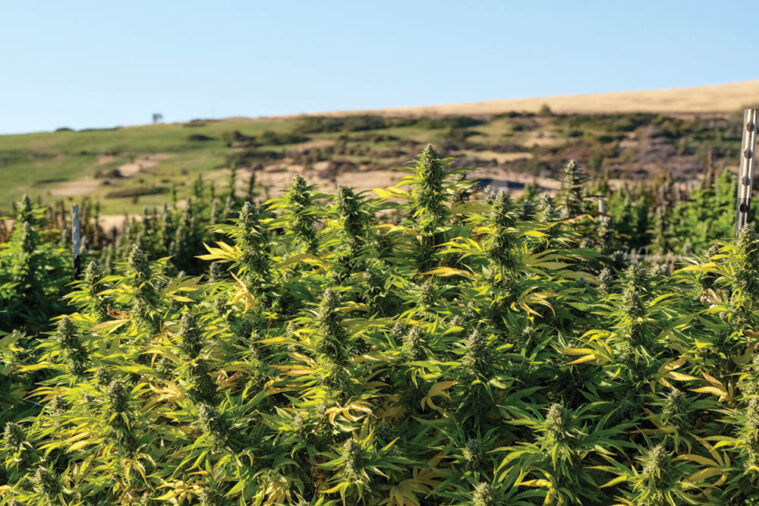
Plants went in the ground June 1 as two-foot-tall clones, and with a beautifully sunny growing season this year, many will stay in the dirt through the end of October. A team of four manages the entire process from start to finish. Because the plants are grown for soil to oil, there’s no trimming or curing; they’re harvested and immediately fresh frozen in giant on-site freezers. Inside frigid walk-ins, the buds are stored in perfect condition until processing.
This year’s outdoor harvest of more than 60,000 pounds will feed the hash processing lab for an entire year. With a 1-2% yield of 90u rosin, this represents a huge stash of hash for the market. Dirty Arm’s rosin jars and pens are exclusively filled with 90u, with the remainder going into Dabinol, gummies and other products as top-shelf, food-grade oil.
“The rosin has brought me back to where I started with bubble hash: a bucket and a paint mixer 24 years ago. Then I went to live resin, and now we use a 200-gallon Icon. We wash 150 pounds of fresh frozen per wash. It’s large-scale for solventless, and right now it’s $30 a gram out the door for customers. Here’s the thing: growing it cheaper, once you get rid of the lights and bullshit, is actually better because the sun is doing it,” he said.
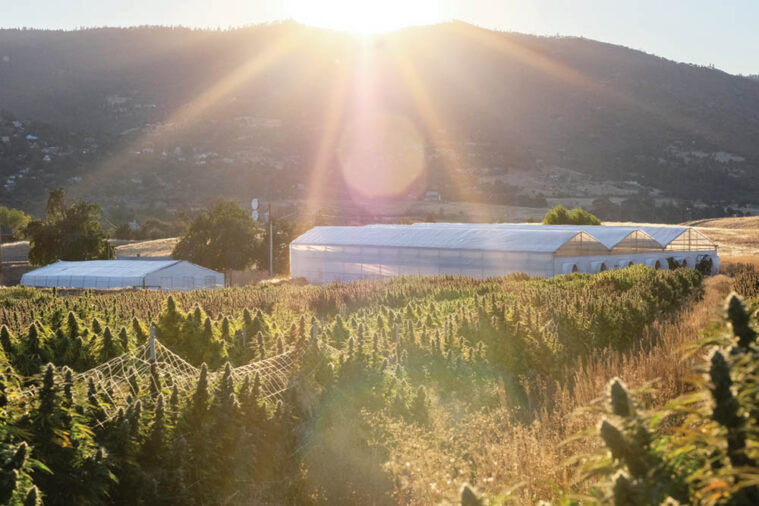
In his years of growing, Syken has endured changing markets, a shift from medical to recreational and a DEA raid in the early days of medical. As his house and farm were raided, he was tackled at the local food co-op and threatened with years in prison. While charges were ultimately dropped, these struggles shaped his run with weed, which today has found a comfortable pace in the enduring race that is legal Cannabis.
“I’ve matured a lot and got to a different point where both the ego and the scene has died,” Syken said, “Now, as a grower, you’re doing a service for Oregonians to improve people’s lives with good weed. I look at my job as a service: to give customers the best for the least.”
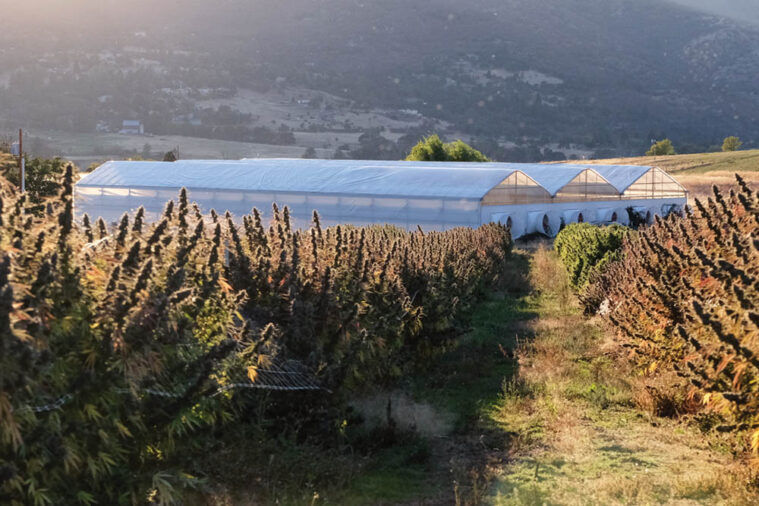
Looking to the future, he hopes for a new chapter of recreational weed, where quality and heritage Oregon companies deliver the most value for customers.
“It’s not the memes or the bullshit anymore; it’s about access for your average person to afford 90u without breaking the bank,” he explained. “This is something you can only do with the right combination of grow knowledge, hash knowledge, the right land and sun, and a lot of hard work. I’m proud because I’m decades into getting to right here, and of all the years, this harvest feels like the real delivery to the people of Oregon.”
With the harvest over and the hash work just beginning, it’s easy to see that the Dirty Arm Farm name is earned and continues to leave a lasting impression on the Oregon Cannabis market.
Dirty Arm Farm
The specifics:
9,000 total plants
30 strains
4 total team members
3 licenses
2 acres of plantings










